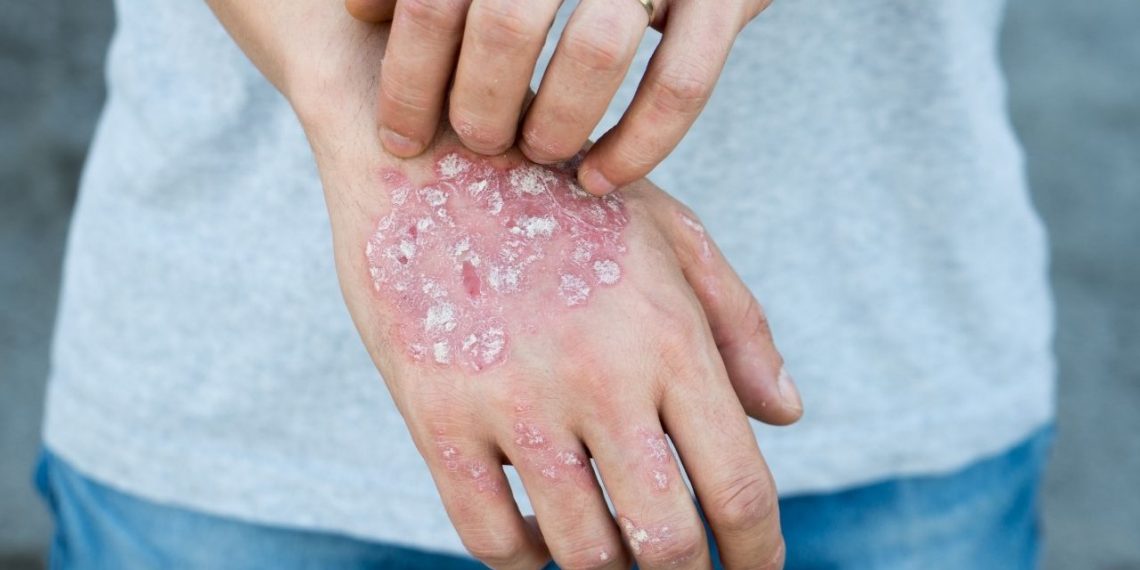Managing Psoriasis can be hard, though there are plenty of things you can do to help and prevent flair ups. Grahams Natural has formulated a natural solution to help with this skin issue. They know a lot about this problem and after a discussion with them we have created a piece around the matter to help you with managing Psoriasis
1. Keep Skin Moisturized
Keeping skin lubricated goes a long way towards preventing dry, itchy skin that’s caused by a flare-up of psoriasis. It may help in reducing redness as well as healing the skin thus making it easier to manage the flare-up.
According to the National Psoriasis Foundation, it is advisable to use heavy creams or ointments that lock in moisture. Look for moisturizers that are alcohol-free or fragrance-free. Alcohol and fragrances tend to dry out skin. As mentioned above, products from Grahams Natural offer effective natural relief.
If you are looking for a cost-effective or natural solution, you should consider using shortening or cooking oils to moisturize the skin. If in doubt, you can always ask your dermatologist for a recommendation.
Take shorter showers with lukewarm water to protect the moisture in the skin. While you are at it, don’t forget to use fragrance-free soaps. It is also advisable to always apply moisturizer after you shower, wash your face, or wash the hands.
If you prefer taking baths or would like to sooth dry, itchy skin, consider adding oil to bathwater. For itchy skin, it is advisable to soak in Dead Sea or Epsom salts. However, ensure that you limit the bath time to 15 minute and moisturize immediately afterwards.
Try putting your moisturizers or creams in the refrigerator. This can help soothe the burning sensation that typically accompanies the itching during flare-ups.
2. Stay on Top of Scalp Itching and Irritation
Try resisting the urge to rub or scratch the scalp during a flare-up. Doing that may cause scabbing, bleeding, or eve hair loss.
Don’t use shampoos that contain alcohol or fragrance. Such products can dry out the scalp and worsen or even lead to more flare-ups. Be gentle when you wash your hair and avoid scrubbing or scratching the scalp.
A scale softener containing salicylic acid may help to soften and loosen patches of psoriasis plaque in case of flare-ups.
3. Reduce Stress
Stress often leads to flare-ups since the body copes with stress through inflammation. Immune systems of people suffering from psoriasis tend to release too many of the chemicals released in case of an injury or infection.
If the psoriasis is causing you anxiety and stress, speak to your doctor. He/she may offer you suggestions for coping with the stress and may also refer you to a mental health professional, such as a social worker or psychologist.
Practicing yoga or medication, working out, or spending time doing the things you love can also be effective ways to reduce stress levels. You might also find it helpful to connect with other people if you suffer from psoriasis. Check with your local hospital for a psoriasis support group or search online for such groups in your area.
4. Eat a Nutritious Diet
Researchers have not yet found a link that connects diet to psoriasis. Still, available evidence suggests that what you eat can increase your psoriasis risk and may even affect how the condition responds to treatment.
Eating a healthy diet may also help reduce the severity of flare-ups. A 2013 study found that those who were obese or overweight and has psoriasis experienced a reduction in the severity of psoriasis with more exercise and a healthier diet.
The National Psoriasis Foundation has found that nutritional supplements or foods rich in omega-3 fatty acids can also help with psoriasis. Omega-3 fatty acids have been linked to a reduction in inflammation.
Here are some sources of omega 3:
– Fish oil supplements
– Vegetable oils
– Soy
– Seeds and nuts
– Fatty fish such as sardines and salmon
Speak with your doctor before increasing the amount of fish oil in your diet. Elevated levels may thin the blood and are not recommended for those taking blood thinners.

